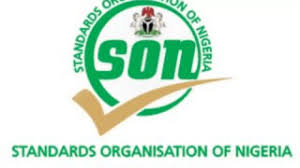As part of the federal government’s agenda for economic diversification, the Standards Organisation of Nigeria (SON) has unfolded potentials and opportunities in the nation’s energy sector. This, the agency did through the approval and launching of four new standards for renewable energy and energy efficiency.
According to the agency, apart from increasing access to power supply across the country, the new standards would open up improved investments in the renewable and efficient energy sector.
A statement from the office of the Director General, SON, explained that the solar power industry relies heavily on standardisation, adding that renewable energy has become increasingly important across the country.
The agency has therefore unveiled new energy standards for energy meters, solar photovoltaic (PV) panels, inverters, batteries and charger controllers.
According to the standards body, this is to substantially increase the share of renewable energy in the global energy mix under the United Nation’s Sustainable Development Goals (SDGs).
Besides, the standards body stated that in a country such as Nigeria where expensive and ecologically harmful diesel generators are widely used, the unveiling of new standards would improve access to electricity in Nigeria.
SON said it would deploy a multi-stakeholder approach with consultations and inputs from relevant public-private entities to develop a more regulated and standardised market that encourages further investments into Renewable Energy (RE) and Efficient Energy (EE) sector.
To achieve this, the SON is currently being supported by the Nigerian Energy Support Programme (NESP), a technical assistance programme co-funded by the European Union and the German Government and implemented by the Deutsche Gesellschaft für Internationale Zusammenarbeit (GIZ) GmbH in collaboration with the Federal Ministry of Power.
SON noted that due to its flexibility and affordability, solar power has fast become the most popular form of renewable power.
SON said NESP aims to improve the framework conditions for investments in the application of renewable energy and energy efficiency and rural electrification, saying that its main objective is to provide guidance towards the achievement of the objectives of the strategy set for the implementation of renewable energy policy.
“NESP aims at enabling and fostering investments in a domestic market for Renewable Energy (RE) and Energy Efficiency (EE) and improving access to electricity in Nigeria,” SON declared.
According to SON, following extensive consultations, 37 standards were selected and approved in November 2020, pointing out that given renewable energy’s increasing prominence, the solar power industry understandably relies heavily on standardization.
“Standards play an essential part in testing, energy conversion, reflectance or materials properties, fabricating arrays, integrating into the smart grid and assuring workplace safety,” SON stressed.
The agency has been enlightening consumers on how to make informed purchasing decisions on energy serving electrical products and appliances.
Send your news, press releases/articles to augustinenwadinamuo@yahoo.com. Also, follow us on Twitter @ptreporters and on Facebook on facebook.com/primetimereporters or call the editor on 07030661526, 08053908817.

